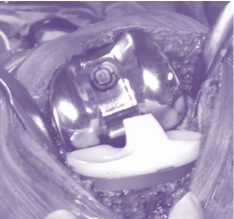Is previous knee arthroscopy realted to a worse outcome after total knee replacement?
I came across this study today, which looked back (retrospective) at patients who had knee replacement. The first group had no previous surgery and the second group of patients had prior knee arthroscopy. The authors found that having prior knee surgery before your total knee replacement was related to a higher rate of complications from the knee replacement surgery and that these patients were less satisfied with their knee replacement. While the study has some problems, such as the fact that it’s retrospective (looking backward in time), it does raise an interesting point. Why? Is it that patients with prior knee arthroscopy are more likely to have chronic knee problems no matter what the surgeon does? Is it related to something in their genetic make-up? Is there something about a prior arthroscopic knee surgery that makes it more difficult to properly install or fit a new metal knee? What was also interesting was that about 1/3 of the patients in the prior knee arthroscopy group needed a second surgery and about 8% needed a new knee replacement surgery (revision arthroplasty) at a mean of about 4.5 years after their first knee replacement. This is a very short time, as most artificial knee joints would be expected to last 10-20 years. Since most patients in the U.S. follow a predictable pattern of a first knee surgery to trim a torn meniscus in their 30’s or 40’s, a second knee surgery to clean up more meniscus tears and torn or worn cartilage (debridement), and then finally require a knee replacement in their 50′ or 60’s, these results could be concerning if the higher complication rate or need for a second knee replacement surgery is caused by some property of the prior knee surgery. On the other hand, if the higher rate of complications and second knee replacement surgery is instead caused by some property of the patients themselves (like genetics that lead to more knee arthritis), then the higher side effects may just be an unavoidable consequence. It will certainly be fascinating to see if another group of researchers publishes something else on prior arthroscopy to confirm these findings.

If you have questions or comments about this blog post, please email us at [email protected]
NOTE: This blog post provides general information to help the reader better understand regenerative medicine, musculoskeletal health, and related subjects. All content provided in this blog, website, or any linked materials, including text, graphics, images, patient profiles, outcomes, and information, are not intended and should not be considered or used as a substitute for medical advice, diagnosis, or treatment. Please always consult with a professional and certified healthcare provider to discuss if a treatment is right for you.

